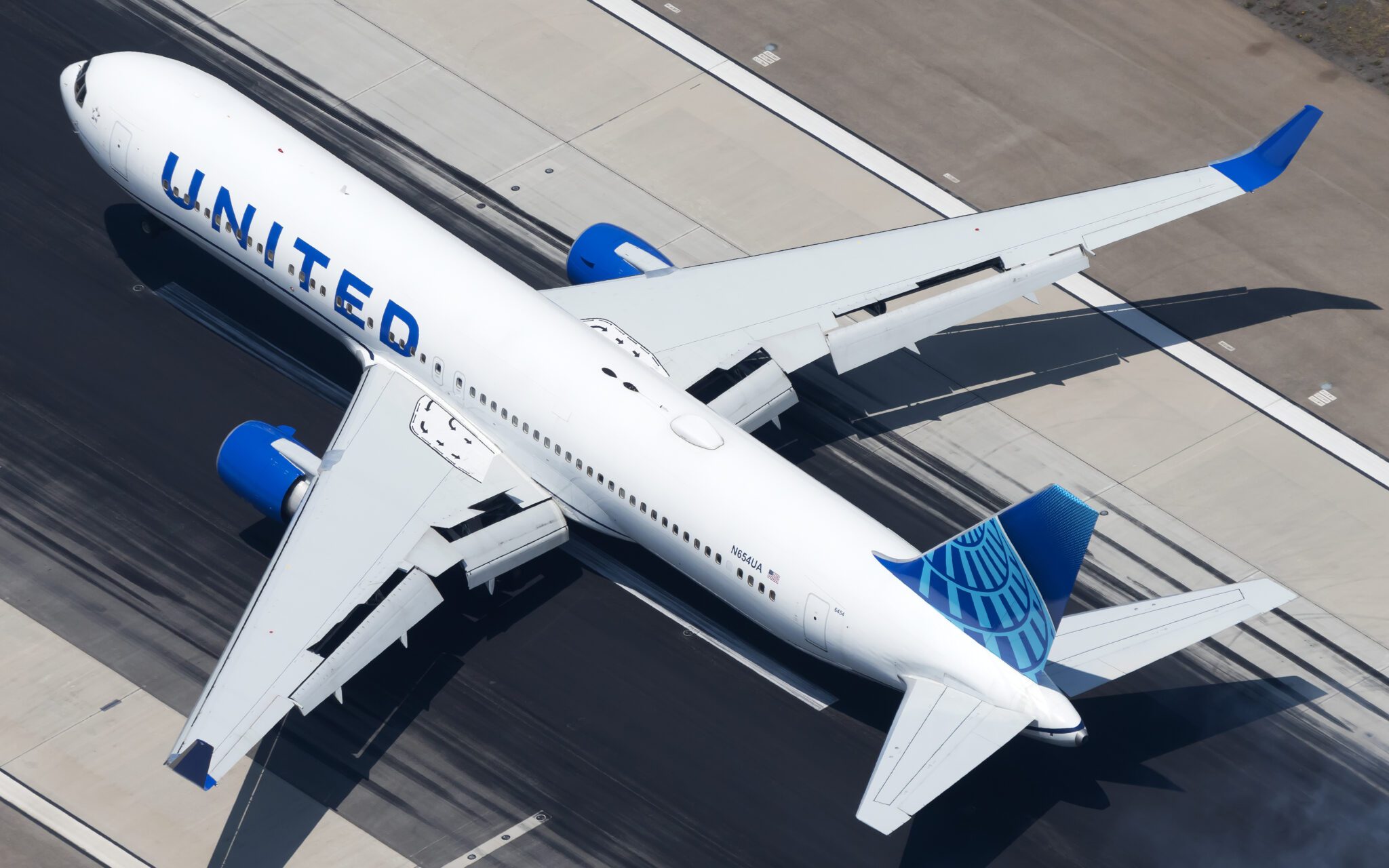Interview: TripAdvisor CEO on What Instant Booking Means to Its Future

Skift Take
There's an argument making that rounds that Google's moves to implement a Book on Google feature, where consumers would book hotels in Google search or maps, is a lot of hype, or even a non-event, because Google would never want to alienate its largest travel advertisers: online travel agencies such as the Priceline Group and Expedia.
In an interview with Skift at TripAdvisor's swanky new headquarters in Needham, Massachusetts, CEO Stephen Kaufer was having none of that.
"We watch [Google] fairly carefully," Kaufer said. "We know from experience that these things tend to take a while to catch on, both from the supply side, as well as the demand side, and the customer side. I take their entry into the space with this booking flow very seriously. I think it is clearly an event versus a non-event.
"So I will disagree with those [who see Google's entry as a non-event]. It may not have a lot of volume at the moment, but I don't think Google would be shy about ... Or the argument that they wouldn't want to move forward for the fear of antagonizing their travel customers, I don't think that would stop them."
On the hot-button Book on TripAdvisor feature, following the announcement a little more than a week ago that the Priceline Group had decided to participate, and the subsequent 25 percent boost to TripAdvisor's market cap, Kaufer said he would welcome Expedia's joining and expects all of the major hotel chains to jump in.
He declined to discuss whether the Priceline Group's Booking.com, Priceline.com or Agoda will get any exclusive or preferential treatment in Book on TripAdvisor, and acknowledged that companies participating in TripAdvisor Instant Booking may have the flexibility to be branded differently than one another during the Book on TripAdvisor process. In that process, consumers can book a hotel from Marriott, Best Western or Booking.com, for example, right on TripAdvisor without having to navigate to the hotel or online travel agency website.
Kaufer discussed numerous issues, including his vision for TripAdvisor and contemplation of getting into new areas, such as events. He draws the line on helping consumers pick auto mechanics, however. Of that scenario, Kaufer said: "Probably not."
An edited version of the interview follows:
Skift: Safe to say TripAdvisor has been in a big transition, with the addition of Instant Booking. Are you betting the company on it?
Stephen Kaufer: We feel travelers are looking for that convenience. It's a great value proposition to start with, "Hey, where do you want to stay?" The reviews, making sure you get the best price, the meta convenience of booking it right in that same device. Betting the company, to me, means you are either putting so many resources in it, that if it failed you are out of business, or if you don't succeed at it, you're out of business. Neither is really true for us. It's a natural evolution, in my opinion. I've been accused of having too many natural evolutions in our short stint as a company. I always believe you need to keep moving because the online travel space is a fast moving category.
Skift: Is pure metasearch as a category dead?
Kaufer: No, not at all. It will be around forever.
Skift: From a consumer perspective, they don't know the difference between search and metasearch.
Kaufer: A site where a consumer can go and see a price comparison display so that they don't have to shop around to the eight or 10 sites themselves -- that is a value and I don't think that value proposition is going to go away. There can be a site that just does that and clicks off to other sites, traditional meta. There will be sites like ours that do that and Book on TripAdvisor, where you can book everything, or almost everything. We all saw Orbitz playing with their price comparison, a very traditional online travel agency, now adding some price comparison, linking off to their competitors. You can kind of come at the value proposition from a lot of different ways. TripAdvisor has chosen one way, but that notion of price comparison I don't think is going away any time soon.
Skift: We remember you saying in an earlier earnings call that some hotels had to be briefed on the advantages of TripAdvisor Instant Booking. Now you have most of the major chains on there -- Wyndham was announced last week -- and Booking.com. So regarding the traction you are getting in 2015 with Book on TripAdvisor, what does that mean to TripAdvisor as a company and how material do you think that will become to you as a business as it grows?
Kaufer: I hope that it will become material to us. I think we started down the Instant Booking path because, on a phone device, the notion of meta clicking off is just not particularly user-friendly. Why have Instant Booking just on the phone and not on other devices didn't make a lot of sense. If you can offer the consumer the chance to compare and book all at once, a bunch will. We are never in the camp of giving up meta or letting a consumer that has a brand loyalty to a Booking.com or an Expedia or a Priceline or a Marriott. By all means, you can, from our site, click off and book on those sites if you have that preference. For the folks that don't care, or prefer the convenience of doing so on TripAdvisor, powered by Marriott or powered by Booking, that's terrific too.
It is still early. It is rolled out in some platforms, some languages. Without going into a definition of materiality when we're driving a business as big as we are, I can say our goal is that this product feature does become more and more material over time. We think it's a great experience. We hear from travelers, yes, that is a delightful experience. It addresses the opportunity to collect more of the bookings that are happening on the phone.
Skift: In terms of getting the Priceline Group into the fold, what was the hurdle that you had to help them overcome because it must have taken them a while to get there compared to some of the hotel chains where the value proposition was clear?
Kaufer: Funny you should compare it to the hotel chains because it was always a bit of question mark for us whether one of the big online travel agencies would join in. We did think that the hotel chains would jump in a lot quicker than they did. Yes, it's second half 2015 and we just announced Wyndham, which is great, but we thought Wyndham should have joined over a year ago. And they did. We think we'll get the remaining chains that we don't have because it's a good product for them. It helps them build so many of the things that they are aiming for.
I don't know if there was any one thing, in respect to Priceline. They are a terrific partner of ours on the meta side. They're just a strong business partner as we each helped each other grow. We are both very global companies. We come at the world at a different perspective, if you will. We're about the reviews, and the choice, and the attractions, and the restaurants, the full trip, and mobile experience. They are one of the top hotel-booking machines, in the most complimentary sense. They are really good at signing supply, getting rates and inventory, and helping people to book. We thought there was a very nice combination. It took quite awhile to get them onboard, but we're there now.
Skift: Do you think the other big online travel agency will follow, as well?
Kaufer: I would like to hope that all of the other online travel agencies will join in. You'll have to ask them what their timing might be.
Skift: In terms of the branding that the partners get in TripAdvisor Instant Booking, I think that was a big controversy. I think it's gone through some iterations of how to display the right kind of branding so that there's no confusion both from the user perspective, as well as from a partner perspective. Where are you at now, in term of the branding? How do you make sure there's no confusion?
Kaufer: I think there has always been general alignment between us and any one of our partners that we want the traveler to know that they booked directly with whoever the partner is. When there is a question mark on the reservation, it is really the partner who the traveler should call. They have access to fix things. Whereas TripAdvisor is only the facilitator.
Skift: You never had customer service, or at least a traditional customer service, as part of your functions directed towards customers?
Kaufer: We do have it in vacation rentals today. We do have it in attractions today. To a lesser degree with restaurants. In hotels, you are quite correct. It was a hand-off and some people would be confused, thinking they booked through TripAdvisor in the meta experience, but very, very few.
Now when the button says, Book on TripAdvisor, we are inviting the confusion of, "Well, am I booking with you guys or I'm booking with you and it says Powered by Marriott. What does that mean?" As you go though the path, we try to make it clear you are booking with Marriott. Here's the Marriott number to call for service. Here's the Marriott link to click on to cancel or update your reservation. It's the security that some people feel about making that booking directly with the supplier.
We are aligned because it doesn't help the traveler if they call us looking to fix something and we then have to call Marriott. That's not a win. We don't want it to be too confusing on the very front end of the cycle. "Book on TripAdvisor in partnership with Marriott where they do the booking..." All that doesn't fit on one button. We've had many discussions with many partners on how to appropriately give the attribution.
Skift: From a product perspective is that branding the same across all of your partners? It's not like the Priceline Group will have a different type of branding versus Accor would have different type of branding?
Kaufer: We might have different kind of branding depending on the partner, in part, because some partners want something different than others. We've retained the flexibility. We come at it from those simple basic points, "Is the customer confused?" Check. "Is the partner happy?" Yes, check. And away we go.
Skift: Are you having active discussions with Expedia about joining? Do you need or want Expedia's participation?
Kaufer: Of course, I would like to have Expedia's participation. We continue to have ongoing discussions with Expedia and just about every other OTA and chain that's out there. We're big. We're global. We have the opportunity to help drive bookings for all of these folks. So, yes is the answer.
Skift: Are there exclusive or preferential aspects in TripAdvisor's agreement with the Priceline group?
Kaufer: I won't go into the details of any particular agreement.
Skift: Do you generally believe Book on TripAdvisor will bring a higher return on investment for partners than participating in TripAdvisor metasearch?
Kaufer: I don't know and it could vary by partner because when participating in the metasearch, partners bid whatever they want. There could be at a great ROI for them or a not-so-great ROI for them. The deal with Instant Booking is generally always a revenue-share. It's comparing apples to oranges.
Skift: What are your views about Book on Google for hotels? Some view it as a non-event in the travel industry as Google likely will never give it the focus and marketing it may deserve out of fear of antagonizing its largest travel advertisers.
Kaufer: We watch fairly carefully. We know from experience that these things tend to take a while to catch on, both from the supply side, as well as the demand side, and the customer side. I take their entry into the space with this booking flow very seriously. I think it is clearly an event versus a non-event. So I will disagree with those [who see Google's entry as a non-event]. It may not have a lot of volume at the moment, but I don't think Google would be shy about ... Or the argument that they wouldn't want to move forward for the fear of antagonizing their travel customers, I don't think that would stop them.
Skift: Are you open to selling TripAdvisor? Are you in this for the long haul? You've been in for the long haul.
Kaufer: I've been doing this for awhile and I'm very much enjoying my job. So, standard answer to standard question about selling a business, of course, I look at my fiduciary responsibilities to shareholders. I think the company has a phenomenally huge opportunity in front of it in terms of helping travelers at all phases of the trip, not just the hotel booking, but look at where we are investing resources. It's a attractions. It's rentals. It's restaurants.
Skift: I've been hearing a lot about restaurants from your colleagues today. You've done several acquisitions, including The Fork.
Kaufer: We bought a number of other restaurant companies in other parts of Europe.
Skift: At what point did you decide that beyond the reviews and now booking, that in-market is an opportunity for us? Meaning attractions and restaurants and other parts as well.
Kaufer: It was 2014 that I finally said that we are sitting on a big asset in terms of the traffic on our sites where people are looking at restaurants and attractions. Outside of CPM (cost per thousand impressions) we are not advertising them at all. How do we invest in the business models of those categories so that we can, in turn, invest in the leading and better product in those categories?
In restaurants, it was reservations in Europe and Australia. In attractions, it's global with Viator. We have the traffic. The traffic is growing at a torrid pace. We have the brand, "Hey what are you going to do when you are at your destination?" "I don't know, I'll check TripAdvisor and see what's available." You have that natural, "Of course I'm going to use TripAdvisor for that."
For restaurants, we have local competitors. If you are in the U.S., you might use Yelp or you might use TripAdvisor to figure out where you are going to eat next. If you are in the UK, you are probably using TripAdvisor. We're not the only player there, but we are a frequent first pick for, "Where do I want to eat tonight?" as a local, let alone as a traveler. So how do we tap into those use cases in more and more ways?
Skift: As you look at your long-term vision for the company, beyond the trip part of it, does TripAdvisor through daily life become more and more important?
Kaufer: It's a common question. We have some tools, and technology, and experience to provide advise on all sorts of things. Yelp does so for, "What auto mechanic should I use?" Not an area we are looking at pursuing now, but there's rarely a subject I'll say "never" on. We feel with everything that is around travel as an activity, inspiration, trip planning, armchair travel -- not actually going anywhere, but I love the experience of it -- getting there, on the trip, things that aren't even possible today on the trip, coming back from the trip, sharing, starting the cycle over again. That's been our wheelhouse. Now, of all those things, some of those things are valuable for locals as well.
We know we have a lot of people reading the reviews of the Museum of Fine Arts here in Boston. And they live in Boston, but they want to decide whether to go there. There is that local aspect with the things that we already do, and we already review, and we already offer advice on: restaurants and attractions.
Are there more subcategories? Sure. We would love to do more in events, In more things that people do on vacation and they might also do at home. But, auto mechanics? Probably not.





